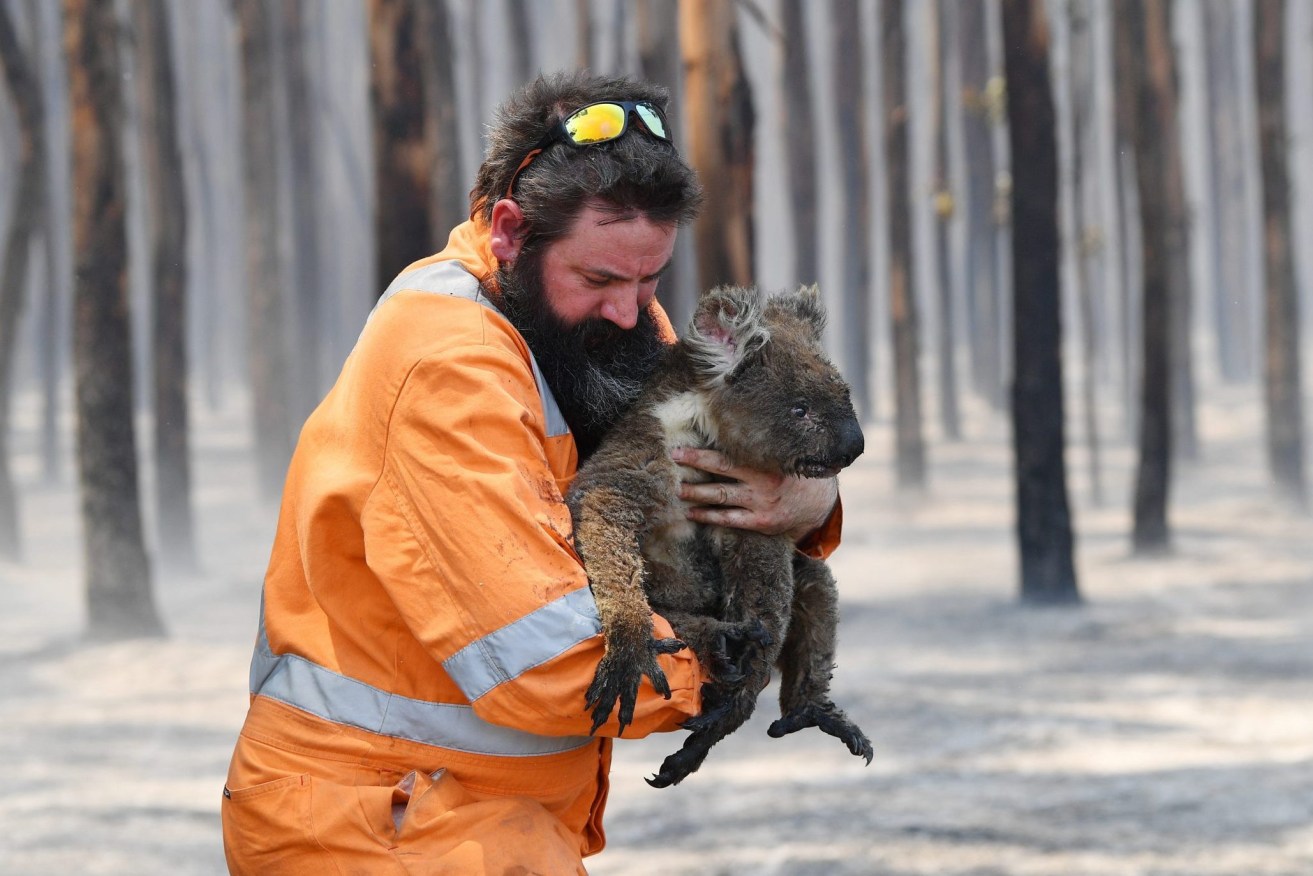Ministers promise action on bushfire risk
State and federal ministers have agreed to work “meaningfully, comprehensively and urgently” in response to the bushfire royal commission recommendations.

The threat of a new El Nino weather pattern could lead to more bushfires. (Photo: David Mariuz/AAP PHOTOS)
Emergency ministers from across Australia have held an extraordinary meeting to discuss the findings of the bushfires royal commission.
State and federal ministers agreed to work “meaningfully, comprehensively and urgently” in response to the recommendations.
Work on several recommendations, such as streamlining warning systems and introducing nationally consistent disaster payments, is already under way.
Federal emergency minister David Littleproud said response plans were in place ahead of the upcoming disaster season.
“Those plans take into account the current COVID environment,” Littleproud said on Thursday.
The national cabinet will discuss the bushfires royal commission when it meets again next week.
The Greens are urging federal parliament not to fast-track the process of calling out defence personnel and reserves to bushfires until constitutional issues are resolved.
The Black Summer bushfires were the first time reserves had been called out to support defence troops.
But there have been concerns raised about legal protections around the process.
A bipartisan Senate committee has recommended new protections be passed by parliament, but noted there are outstanding constitutional matters.
Greens Senator Jordon Steele-John said the fact the committee uncovered constitutional problems should give politicians pause for thought.
“There are significant constitutional ambiguities around the source of power that can be drawn upon to use ADF personnel in civil disaster situations which remain unanswered,” he said.
The senator pointed to evidence from constitutional expert Anne Twomey, who told the committee it was a murky and unclear area.
The committee’s majority report said the proposed laws were aimed at streamlining calling out reserves, providing defence personnel with greater legal protections and protecting the civilian jobs of reservists.
“The committee acknowledges the measures contained in the bill do not change the government’s legal authority to deploy the ADF in response to natural disasters and other emergencies but just streamline the process for making them available.”
However, it noted people raised concerns about whether there was adequate constitutional power for using the ADF to provide disaster relief and other non-law and order assistance to the states and territories.
“The committee agrees it would be helpful for this issue to be clarified at some future point to maintain public confidence and strengthen the capacity to provide and regulate such assistance to the wider community.
“However, that is not the subject of this bill.”
-AAP












